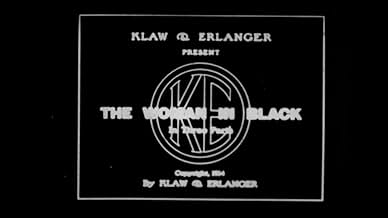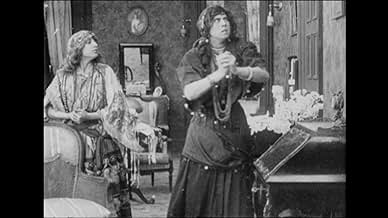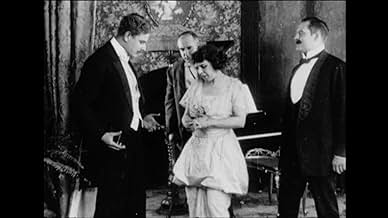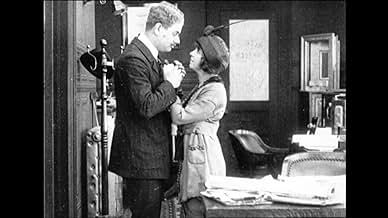Young gypsy girl Mary, is seduced by the immoral Robert Crane and abandoned. She is exiled from the gypsies and, along with her mother Zenda, known as "The Woman in Black," she vows revenge.... Read allYoung gypsy girl Mary, is seduced by the immoral Robert Crane and abandoned. She is exiled from the gypsies and, along with her mother Zenda, known as "The Woman in Black," she vows revenge. Meanwhile, Crane blackmails Stella Everett's father into forcing her to marry him, even t... Read allYoung gypsy girl Mary, is seduced by the immoral Robert Crane and abandoned. She is exiled from the gypsies and, along with her mother Zenda, known as "The Woman in Black," she vows revenge. Meanwhile, Crane blackmails Stella Everett's father into forcing her to marry him, even though she loves Frank Mansfield, Crane's rival for a congressional seat. Frank wins, but S... Read all
- Director
- Writer
- All cast & crew
- Production, box office & more at IMDbPro
Featured reviews
It's one of the features that Klaw & Erlanger produced for Biograph after they rid themselves of D. W. Griffith. All of the reforms he made are gone, except for the Biograph Right Wall. The story is from a stage success, and told via titles and excessive arm-waving, even by Barrymore, who knew better; blame director Lawrence Marston. The copy was not in good shape, and whoever produced this copy decided to fill the soundtrack with jazzy hits of the 1920s that bore no relation to what was happening onscreen. So: decent if antiquated story, bad production, idiotic soundtrack.
Unable to withstand the pressure, they sought solutions that would somehow allow them to spread or minimise the risk. Vitagraph followed the British exampe in relying largely on classics, although it proved a staregy rathr less well-adapted to the US market. The most successful and the most innovative risk-reduction device was without doubt the serial-film which spawned in the process an entirely new genre. In France Pathé also used its semi-detached association with Le Film d'Art to co-produce longer films that it could always disown if the expense got out of hand.
Biograph entered in 1913 into a rather similar arrangemet with the theatrical producers Klaw and Erlanger, the idea being that the latter would produce a series of longer films (three-reelers, between forty minutes and an hour) based on sucessful stage plays that they owned. They announced with great pomp and circumstance on 12 March 1913 that the new company would be called The Protective Amusement Company (general manager Pat Casey), although there is not much sign that his bizarre appellation was ever really used), would involve film-producers A. H. Woods and T. Hayes Hunter (the latter being overall artistic director for the series) for which an entirely new studio would be built. Cinemas were to be sold exclusive rights to the films which would then be exhibited at a somewhat higher price. The intention was to produe two "plays" per week.
Rather like Vitagraph's literary fare, this all provided a litle highbrow for general US tastes and the series does not sem to have been much of a success, but at least thirty films were produced. They all made use of the existing Biograph directors (Frank Powell, dell Henderson, Lawrence Marston etc) and the actors ad actresses, most notably perhaps the Gish sisters (Liberty Belle, Man's Enemy and Lord Chumley all starred Lillian while A Fair Rebel starred Dorothy) and Lionel Barrymore (Women Against Wome, Men and Women, Under the Gaslight, The Power of the Press and Dora Thorne). All the films seem to have been made in 1914 although many were subsequently re-released by Biograph during 1915 and 1916.
This film - a good old-fashioned melodrama (it is based on a play of 1896-1897 by ) also stars Barrymore who dominates the film as the villain Crane. It has many elements that were still fashioable - gypsies, reform politicians versus city bosses) and is elegantly mis en scène by Marston and well filmed by Gaudio.
This film is available from the Library of Congress paper print oollection. Another of the Klaw and Erlanger films, the comedy The Rejuvenation of Aunt Mary directed by Edward Dillon, is also available frm LoC..
Did you know
- TriviaFirst credited role of Lionel Barrymore in a feature film.
- Alternate versionsOriginally released in 1914 as a three-reeler. Re-issued as a five-reeler in 1916.
Details
- Release date
- Country of origin
- Language
- Also known as
- La mujer de negro
- Production companies
- See more company credits at IMDbPro
- Runtime
- 55m
- Color
- Sound mix
- Aspect ratio
- 1.33 : 1












